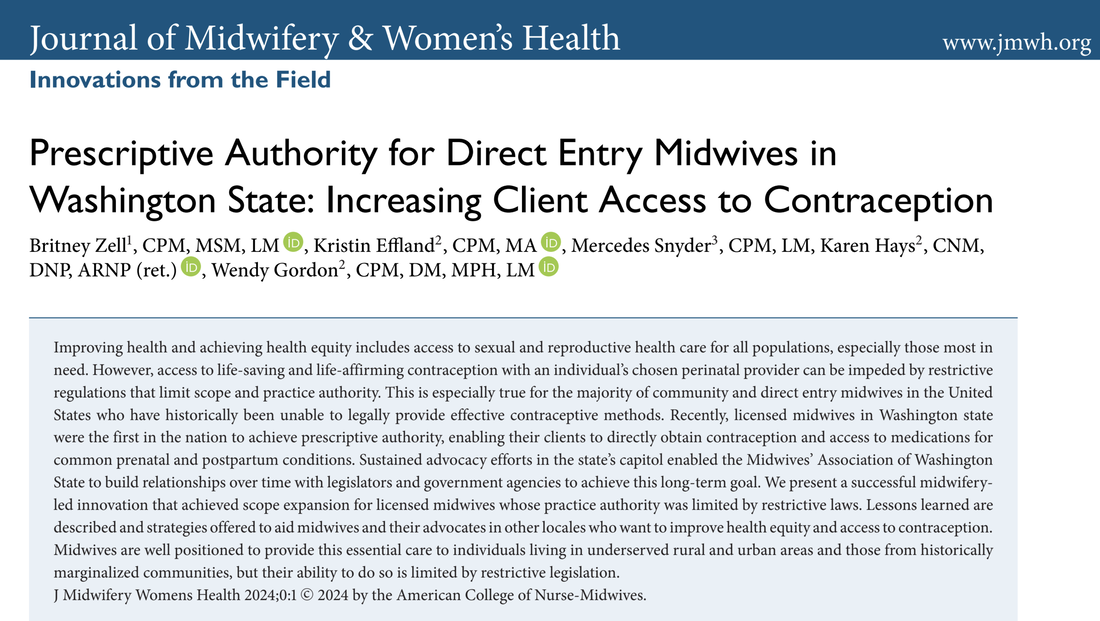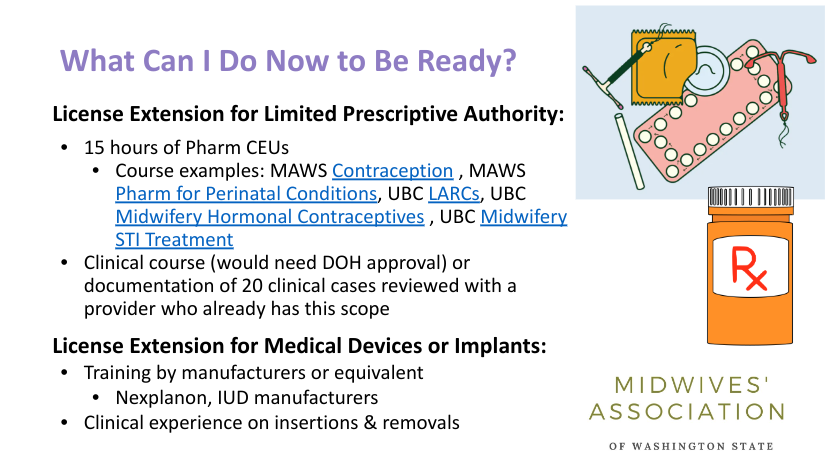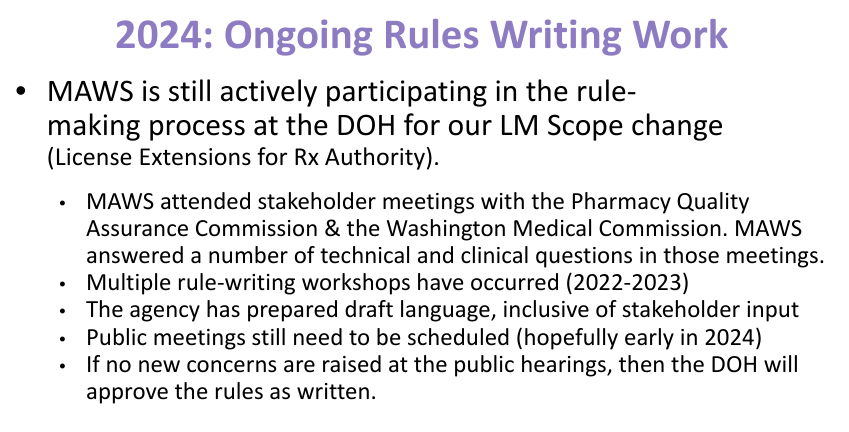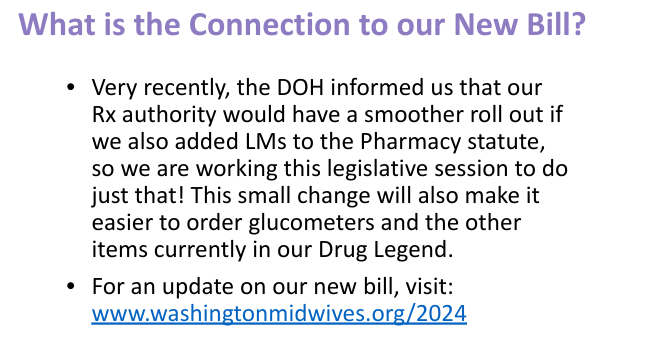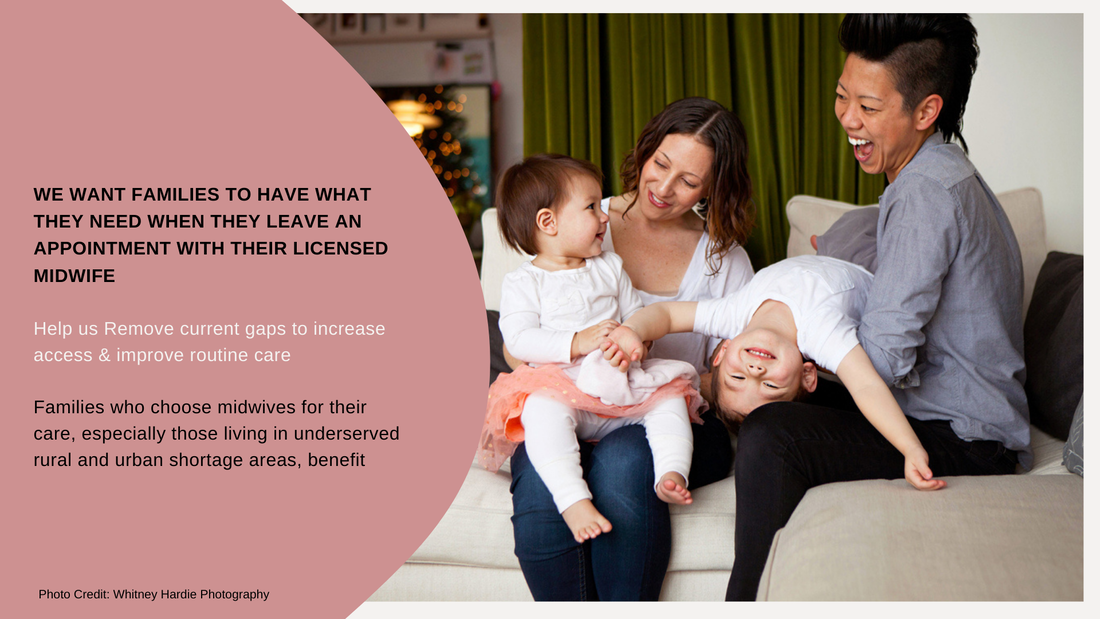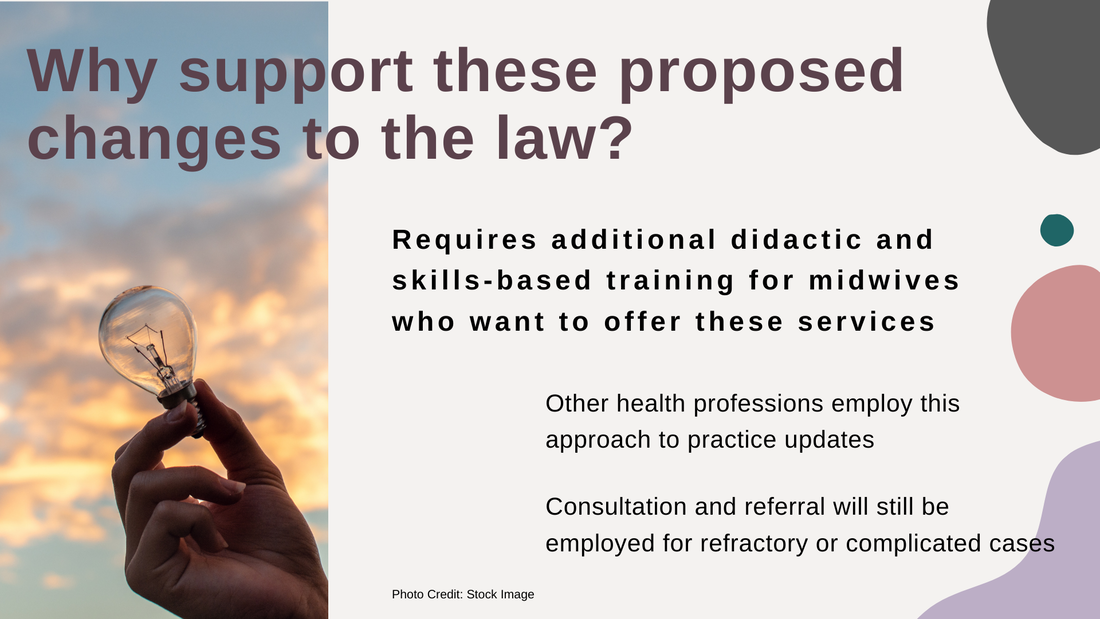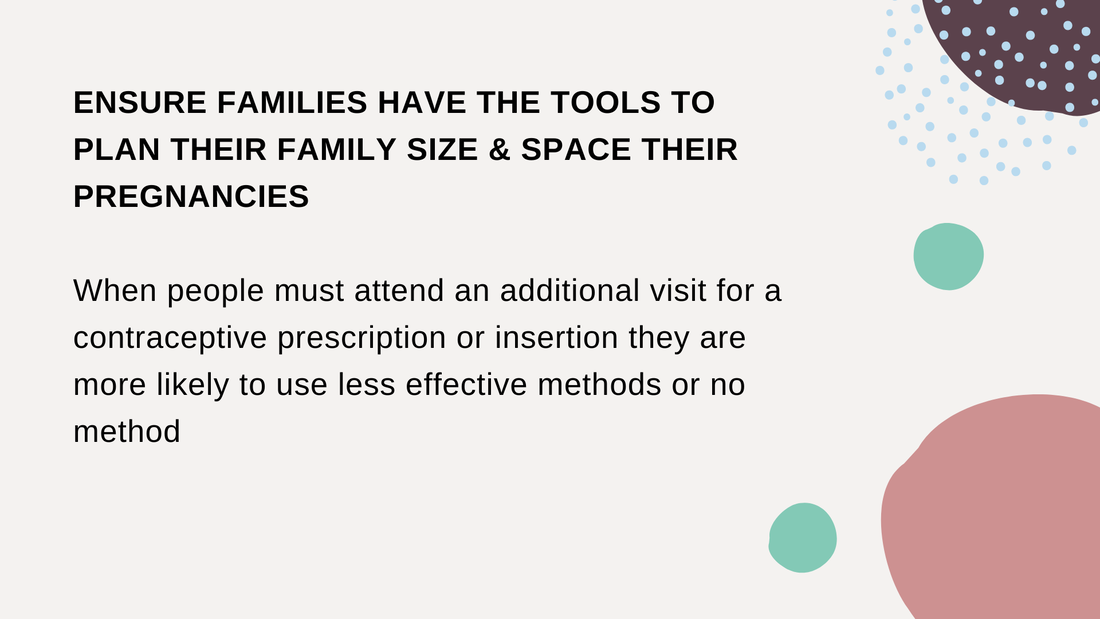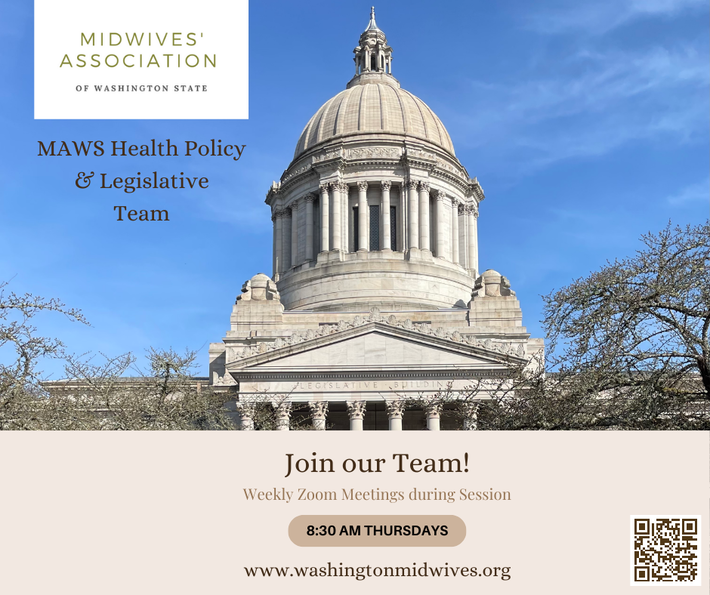Want to know more about this First-in-the-Nation Policy Passed in WA in 2022?
|
Read the whole story in the following article.
To request the full text, email [email protected] |
Read here about the Status of Implementation of this Law
|
|
Citation:
Zell, B., Effland, K., Hays, K., Snyder, M., Gordon, W. (2024). Prescriptive Authority for Direct Entry Midwives in Washington State: Increasing Client Access to Contraception. Journal of Midwifery & Women’s Health. 68(6), http://doi.org/10.1111/jmwh.13606 |
The History & Approach to Advocacy
In the wee hours of the morning on March 4, 2022, the last day of session, the House passed SSB 5765! Then the Governor signed the bill into law. At present, the rules writing process is underway (see above for update).
This legislation, creating a prescriptive authority pathway for Licensed Midwives that is autonomous and client-centered is, to our knowledge, the first of its kind in the country.
This legislation, creating a prescriptive authority pathway for Licensed Midwives that is autonomous and client-centered is, to our knowledge, the first of its kind in the country.
|
2022 Legislative & Policy Update & Agenda ONE PAGE DOWNLOAD Our bill SSB 5765 to authorize Licensed Midwives to prescribe contraceptives and manage common conditions of pregnancy passed the WA State Senate and House this 2022 legislative session! Rationale: When people who have just had a baby must attend an extra appointment to get a contraceptive prescription or insertion they are less likely to use effective methods or any method. As Licensed Midwives do not currently have the authority to prescribe all contraceptive types, their patients risk delay and loss to follow-up, which significantly impacts already vulnerable and marginalized populations. Barriers have been identified as cost or insurance obstacles, time, inconvenience, transportation barriers, or new provider trust issues. SB 5765 would enable the Licensed Midwives’ “Legend Drug and Devices” to be updated. SB 5765 has the potential to:
We are grateful the licensing fee cap is maintained through this biennium. MAWS also supported:
Published by the Midwives’ Association of Washington State (MAWS) 2022 For more information, please contact: Jen Segadelli, MAWS President [email protected] or Amber Ulvenes, MAWS Lobbyist, at (360) 280-0384 [email protected] |
|
References:
- Zerden ML, Tang JH, Stuart GS, Norton DR, Verbiest SB, Brody S. Barriers to receiving long-acting reversible contraception in the postpartum period. Women's Health Issues. 2015;25(6):616-621. doi:10.1016/j.whi.2015.06.004
- Segadelli J. The provision of contraceptive services by Licensed Midwives in Washington state: Proposed statutory and regulatory language for expanding the scope of practice [master’s thesis]. Kenmore, WA: Bastyr University, 2016.
- Effland, K. J., Hays, K. E., Zell, B. A., Lawal, T. K., & Koontz, M. (2020). Medication access and midwifery integration: An example of community midwifery advocacy for access in Washington State, USA. Birth. https://onlinelibrary.wiley.com/doi/full/10.1111/birt.12523
- Beal MW, Batzli ME, Hoyt A. Regulation of certified nurse‐midwife scope of practice: Change in the professional practice index, 2000 to 2015. J Midwifery Womens Health. 2015;60(5):510‐518. https://doi.org/10.1111/jmwh.12362
Wiley Online Library PubMed Web of Science®Google Scholar - Kuo YF, Loresto FL Jr, Rounds LR, Goodwin JS. States with the least restrictive regulations experienced the largest increase in patients seen by nurse practitioners. Health Aff. 2013;32(7):1236‐1243. https://doi.org/10.1377/hlthaff.2013.0072
Crossref PubMed Web of Science®Google Scholar - Markowitz S, Adams EK, Lewitt MJ, Dunlop AL. Competitive effects of scope of practice restrictions: Public health or public harm? J Health Econ. 2017;55:201‐218. https://doi.org/10.1016/j.jhealeco.2017.07.004
Crossref PubMed Web of Science®Google Scholar - Neff DF, Yoon SH, Steiner RL, et al. The impact of nurse practitioner regulations on population access to care. Nurs Outlook. 2018;66(4):379‐385. https://doi.org/10.1016/j.outlook.2018.03.001
Crossref PubMed Web of Science®Google Scholar - Perry JJ. State‐granted practice authority: Do nurse practitioners vote with their feet? Nurs Res Pract. 2012;2012:482178. https://doi.org/10.1155/2012/482178
PubMed Google Scholar - Ranchoff BL, Declercq ER. The scope of midwifery practice regulations and the availability of the certified nurse‐midwifery and certified midwifery workforce, 2012–2016. J Midwifery Womens Health. 2020;65(1):119‐130.
Wiley Online Library PubMed Web of Science®Google Scholar - Yang YT, Attanasio LB, Kozhimannil KB. State scope of practice laws, nurse‐midwifery workforce, and childbirth procedures and outcomes. Womens Health Issues. 2016;26(3):262‐267. https://doi.org/10.1016/j.whi.2016.02.003
- Effland, K. J., Hays, K., Zell, B. A., Lawal, T., Grantham, R. L., & Koontz, M. (2021). Increasing access to medications and devices for the care of low-risk childbearing families: An analysis of existing law and strategies for advocacy. Journal of Midwifery & Women’s Health. 66(5), 604-623. https://doi.org/10.1111/jmwh.13275
And we have so many people to thank, but the adequate words escape us in this moment. So while it is so insufficient, and not even close to recognizing all who have been instrumental, please accept our gratitude as we search to find the words: Thank you to Senator Emily Randall for your tenacious spirit, drive for access, and commitment to equity to see this bill through. To our lobbyist, Amber Ulvenes, whose professionalism, charisma, and bridge-building for years in Olympia undoubtedly led to this moment. To all the leaders who came before us to pave the way for midwifery in Washington State. To our unwavering Legislative & Policy team who meets every week in the early morning to constantly push legislative progress for our profession. And, of course, to you: the midwives, the mentors, the clients, the birthworkers and supporters, the people who answered every email and call to come to Midwife Lobby Day and reach out to representatives...nothing is possible without you.
Thank you, thank you, thank you.
We can't wait to share a virtual celebration with you all, and a time for all your questions and comments -- details coming soon! But for now, please soak in this moment -- it's a big one!
MAWS also supported the following bills & initiatives this session:
- Support SB 5702: Insurance coverage of human breast milk from a milk bank while babies are hospitalized.
- Many health benefits and long term savings to the healthcare system!
- Support HB 1651: Allowing providers to bill separately for immediate postpartum contraception.
- Currently only covered at final postpartum visit
- Support HB 1881: Access to reimbursement for Doulas
- To increase the availability of this evidence-based care that improves outcomes!
- Support HB 1947/SB 5838: Providing a monthly diaper subsidy for families receiving TANF
- Support: Access to Community Health Workers for Relational Health
- Connecting families with social determinant of health needs to postpartum services (No bill, advocating to be included in the state budget)
- Invest in Perinatal Support though the Washington’s Parent Support Warm Line so un- and underserved expectant and new parents have greater and more equitable access to mental health services through peer- to-peer engagement and increased public awareness. (No bill, advocating to be included in the state budget)
We are grateful to have so many opportunities to support better perinatal and postpartum care and experiences in our state. Thanks for all you're doing to engage in local politics!
Warmly,
The MAWS Legislation & Policy Team
In Brief, SB 5765 creates an option for LMs to choose to complete:
* Additional training to be able to offer clients contraception (except sterilization) & medications for the treatment of common infections in pregnancy (ie. UTIs, mastitis). For clarification, the bill does not extend scope of practice to include abortion services.
* We are grateful for the cap on the LM annual license fee of $525 which is maintained through this biennium
Watch the Recording of the 2022 Legislative Agenda Webinar or read the Policy Agenda for more info!
